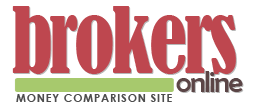What are Self Certification Mortgages?
Hot Topics
- Where Can I Buy a Mortgage?
- Many, but not all financial services companies offer mortgages. If you are looking for a mortgage the traditional approach is to speak to you bank or a building society. However, you are most likely to find the cheapest deals by speaking to a Mortgage Broker.
- What Happens If I Want To Move Home?
- Moving home is basically the same as moving into your first home, in mortgage terms. You are free to find yourself another mortgage with either your existing lender or another lender – and can shop around for the best deal on the market.
- Information For 1st Time Mortgage Buyers
- Your first mortgage will be the most significant financial undertaking of your life so far, but how exactly do you go about getting a mortgage?
- What are Variable Rate Mortgages?
- A variable rate mortgage is when you pay a standard variable rate (SVR) that changes in line with the Bank of England's base rate. The SVR is usually between 2% and 4% higher than the Bank of England's base rate, but this will vary from lender to lender.
- What are Self Certification Mortgages?
- When you apply for a mortgage, the lender will require from you proof that you will be able to maintain the mortgage payments, and do not present a risk of non-payment for the large amount of money you are borrowing.
When you apply for a mortgage, the lender will require from you proof that you will be able to maintain the mortgage payments, and do not present a risk of non-payment for the large amount of money you are borrowing. Their mode of calculation is to compare your monthly income to your monthly payments. Many mortgage companies will lend you up to 3.5 times your annual income, and in the present climate of high house prices, some mortgage companies will offer a lot more to secure your business.
If you are an employee of a company, you will offer pay slips or a reference from your company to as proof of your income. However if you are self-employed, you will need to certify your income yourself. If you’ve been in business for three years or more, a mortgage company will accept three years of your business’ accounts. This is what is needed to obtain a self-employed mortgage.
If you have been in business for less than three years and therefore cannot provide the necessary accounts, you will need to declare your income without proof of accounts. This is known as a self-certification mortgage, because you are declaring your income without an examination of your accounts. What you will need an accountant's certificate, which is a signed document saying that your income will meet the terms of the requested loan. You may also need to provide business bank statements over a period defined by the lender so that they can look at your gross income.
If you already have a mortgage, you will be able to use your current mortgage statements to show how reliable you have been in paying off your mortgage. If you are a tenant, you will need to ask your landlord to provide you with a reference to show that you have always paid your rent on time and without arrears.
In addition to the above, your mortgage lender will run a full credit check - looking at your credit history as well as scoring you on your job and living history. This is an important aspect to a successful mortgage application, because most mortgage companies will not lend to a customer they perceive to be a bad credit risk. If you do have a bed credit rating, then you may need to seek your self-certification mortgage from a sub-prime lender. They will offer you the mortgage agreement however it will be more expensive.
In general, the self-certification mortgage is rarely provided for mortgages worth more than 75% of the value of the property, this means that you will need to put down a considerable deposit. It’s possible to get up to 85% of the property on a self-certification mortgage loan, but you’ll need to shop around to get that kind of rare opportunity.
1st Time Buyer - Buy to Let Mortgages - Capped Rate Mortgages - Discount Mortgages - Fixed Rate Mortgages - Flexible Mortgages - ISA Mortgages - Low Setup Cost Mortgages - Self Cert Mortgages - Tracker Mortgages - 100% Mortgages Cashback Mortgages - Adverse Credit - Buy to Let - Commercial Mortgages - Company Directors - Equity Release - Fixed Rate Mortgages - Income Multiples - Interest Rates Explained - Mortgage Glossary - Mortgage Variations - Mortgages Explained - Previously Declined - Refinance Mortgages - Repaying Mortgages - Right to Buy Mortgages - Self Employed - Unusual Properties - Variable Rate Mortgages




